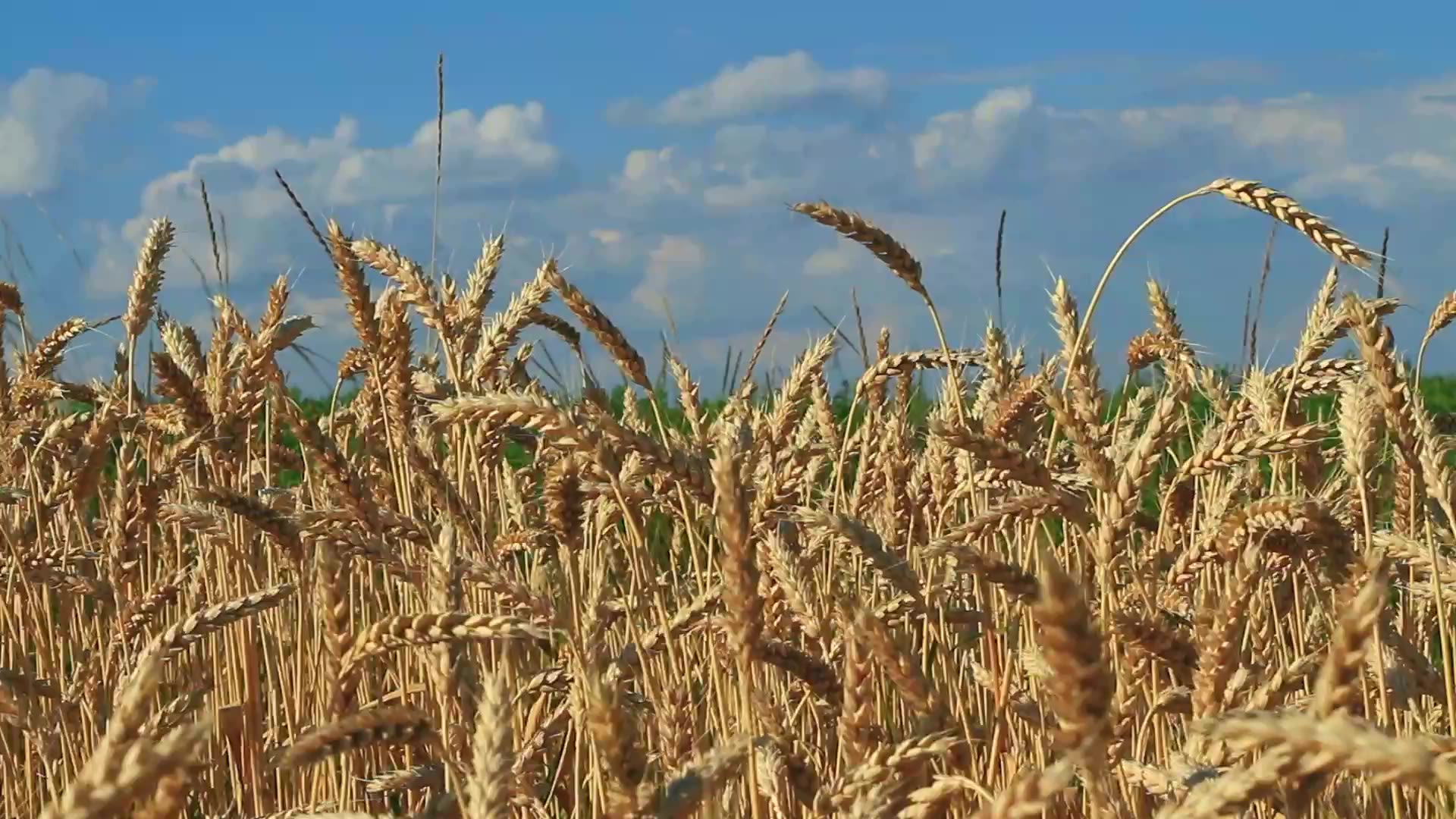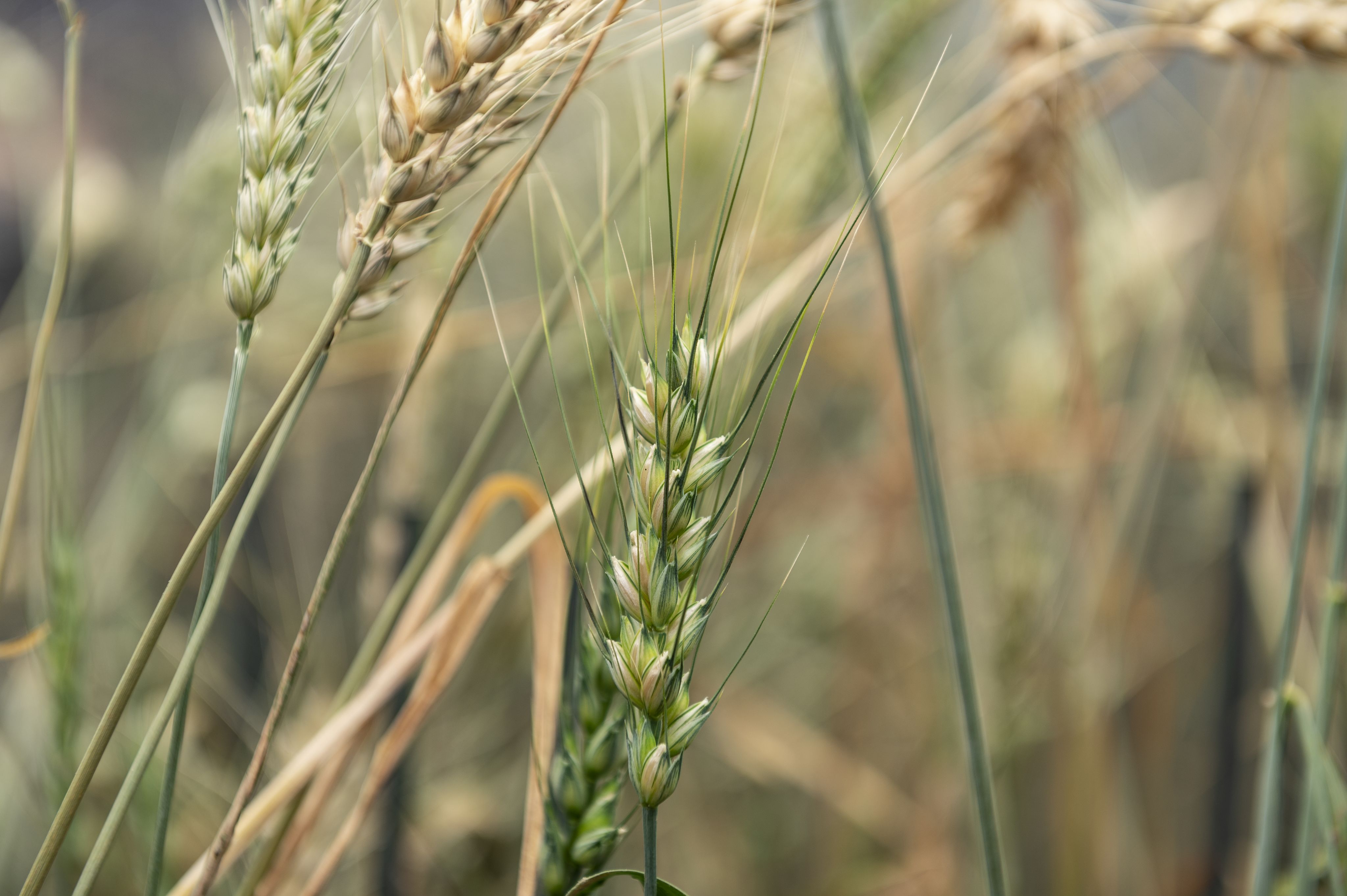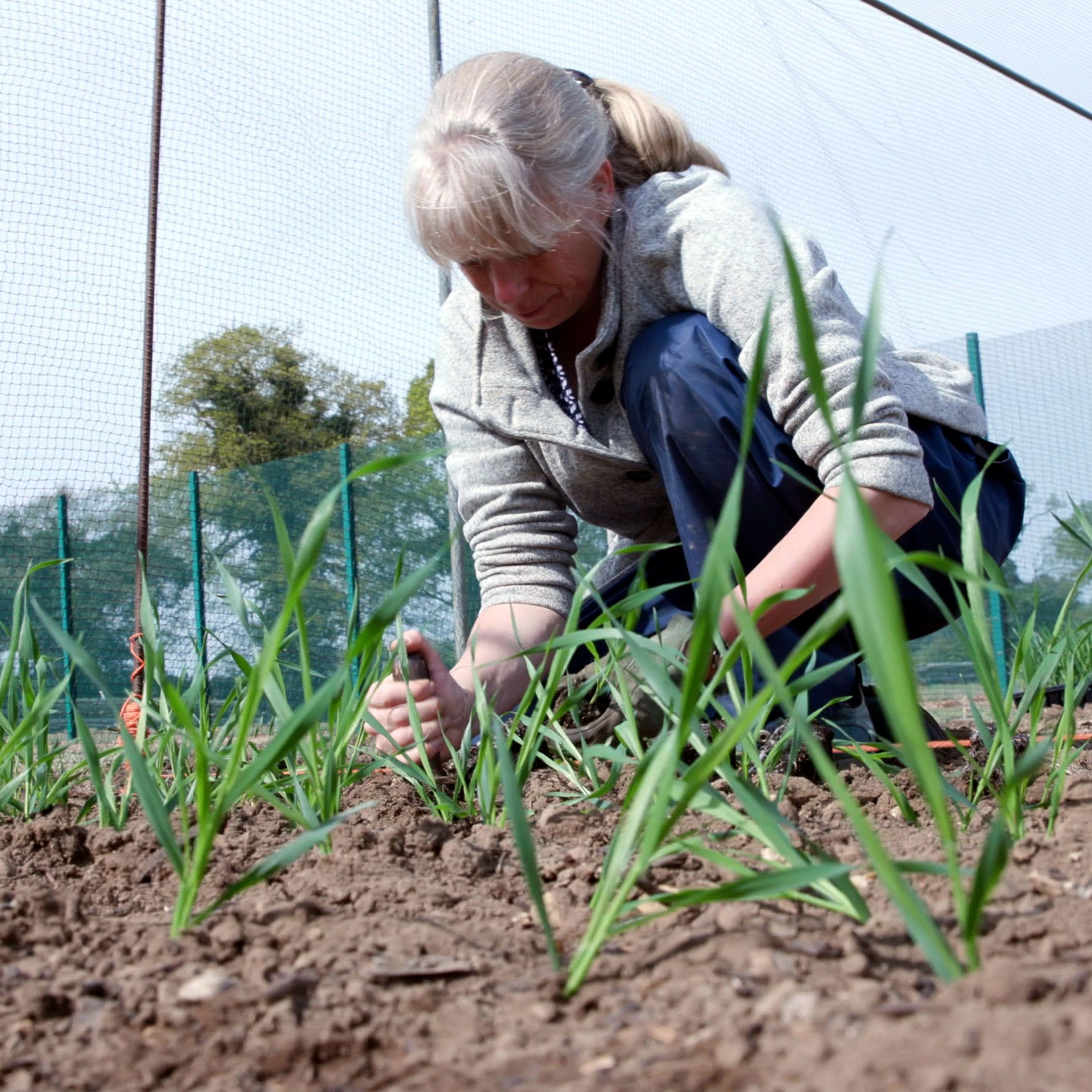Case Study 5
Precision wheat breeding unleashed - the Zip4 gene
Part of the Revolutionising Wheat Story

This novel ZIP4 gene copy ensures wheat genome stability and yield by facilitating correct chromosome pairing.
John Innes Centre researchers used CRISPR-Cas9 to create a new wheat mutant lacking the novel ZIP4 gene copy. The result? A 50% drop in grain count, confirming the gene’s pivotal role in maintaining wheat fertility.
The novel ZIP4 gene copy has a second pivotal role, preventing exchange of genetic information from related chromosomes. A mutant lacking only this suppressing function can be used in breeding to facilitate introduction of desirable traits such as temperature tolerance from wheat’s wild relatives.
These two newfound wisdoms opens doors for wheat breeding innovations. Scientists can tinker with variations in the novel ZIP4 copy to breed resilient crops, such as tailoring genome stability during germ cell division to changes in temperatures.
In March 2023, the UK government introduced the Precision Breeding Act, cutting bureaucratic hurdles for gene editing. This legislation empowers researchers to tackle global challenges like food security and climate resilience through advancements such as this on ZIP4.
Learn more about JIC’s breakthrough.
Learn more about CISPR's gene editing



BBSRC invests to push back the frontiers of biology and deliver a healthy, prosperous and sustainable future.
https://www.ukri.org/councils/bbsrc/
Get in touch with us to discuss BBSRC’s research outcomes and impacts or to tell us about your own:
Emma Lambourne
Senior Manager, Impact Evidence
emma.lambourne@bbsrc.ukri.org
Dr Beverley Thomas
Associate Director, Evidence and Evaluation
beverley.thomas@bbsrc.ukri.org
